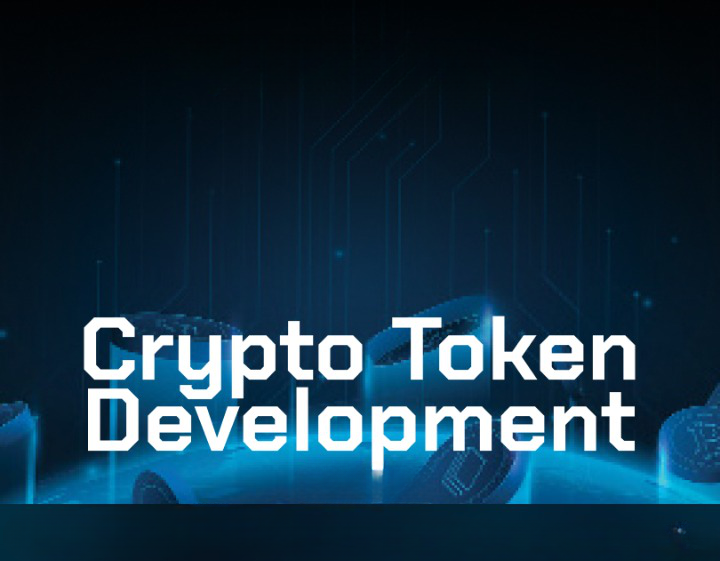The cryptocurrency landscape is in constant flux, with new protocols and token standards emerging at a dizzying pace. If you’re looking to build the next-gen crypto token that stands out from the crowd, you need to stay ahead of the curve and understand the latest trends in blockchain development. This blog explores four promising avenues for next-generation Crypto Token Development: Solana tokens, Polygon tokens, Optimism Native Tokens, and soulbound tokens.
1. Solana Tokens: Speed and Scalability for the Masses
Solana has rapidly garnered favor within the cryptocurrency community, thanks to its blazing-fast transaction speeds and low fees. Solana’s unique Proof-of-History (PoH) consensus mechanism allows it to process thousands of transactions per second, making it ideal for building high-throughput applications like decentralized exchanges (DEXs) and gaming platforms.
Developing Solana tokens involves understanding the Solana Program Library (SPL), a collection of Rust libraries and tools used to create programs and tokens on the Solana blockchain. SPL tokens benefit from Solana’s fast transaction speeds and scalability, making them attractive for projects requiring high-frequency transactions and mass adoption.
Key considerations for Solana token development:
Security: Use established libraries and best practices to ensure your token’s security.
Performance: Optimize your token program for efficiency and low transaction fees.
Liquidity: Implement strategies to attract liquidity to your token and ensure smooth trading.
Community: Build a strong community around your project to drive adoption and engagement.
2. Polygon Tokens: Ethereum Sidechain Scalability
Polygon is a popular sidechain solution for Ethereum, offering faster and cheaper transactions while maintaining compatibility with the Ethereum Virtual Machine (EVM). This makes it a compelling choice for developers looking to build Ethereum-compatible tokens without facing the scalability limitations of the mainnet.
Developing a token on Polygon involves using the Polygon SDK, a collection of tools and libraries for building decentralized applications (dApps) on the Polygon network. Polygon tokens inherit the security and flexibility of the Ethereum blockchain while enjoying the benefits of Polygon’s faster transaction speeds and lower fees.
Key considerations for Polygon token development
Compatibility: Ensure your token is compatible with the Ethereum ecosystem for easy integration and adoption.
Interoperability: Leverage Polygon’s cross-chain bridges for seamless asset movement between Ethereum and Polygon.
Governance: Design a governance model that empowers your token holders to make decisions about the project’s future.
Decentralization: Maintain a high degree of decentralization to ensure the long-term sustainability of your project.
3. Optimism Native Tokens: Optimistic Rollups for Secure Scalability
Optimism is a Layer 2 rollup solution for Ethereum that uses optimistic rollups to achieve scalability while maintaining Ethereum’s security guarantees. This makes it a promising platform for building high-value applications like DeFi protocols and NFT marketplaces.
Developing Optimism Native Tokens involves using the Optimism SDK, a collection of tools and libraries for building on the Optimism network. Optimism tokens benefit from the security and trust of the Ethereum blockchain while enjoying the scalability and cost-effectiveness of Optimism’s optimistic rollup technology.
Key considerations for Optimism Native Token development
Security: Leverage Optimism’s inherent security guarantees to protect your token and its users.
Fraud proofs: Understand how fraud proofs work in optimistic rollups and ensure your token program can handle them effectively.
Data availability: Choose data availability solutions that ensure your token’s functionality and transparency on the Ethereum mainnet.
Governance: Design a governance system that aligns the interests of token holders with the long-term goals of the Optimism network.
4. Soulbound Tokens: Identity and Reputation on the Blockchain
Soulbound tokens (SBTs) are a new type of token that is non-transferable and permanently bound to a user’s identity. This makes them ideal for representing credentials, affiliations, and achievements in the digital world. SBTs have the potential to revolutionize online identity management and create new trust-based ecosystems.
Soulbound Token Development involves understanding the emerging standards and protocols for representing and verifying digital identities on the blockchain. SBTs can be built on various platforms like Ethereum, Solana, and dedicated SBT networks.
Key considerations for Soulbound Token development
Privacy: Design your SBT system with user privacy in mind, allowing users to control what information is publicly visible.
Standardization: Follow established or emerging standards for SBT representation and verification to ensure interoperability and adoption.
Use cases: Identify clear use cases for your SBTs that add value to users and create a compelling reason for adoption.
Governance: Develop a governance framework that ensures the sustainable development and evolution of your SBT ecosystem.
Building the Future of Crypto Tokens: Choosing the Right Path
Deciding which platform to build your next-gen token on depends on your specific project goals and requirements. Here’s a lightning-fast rundown to assist you in making the right choice.
Remember, these are just some general considerations. It’s crucial to conduct thorough research and consult with experienced Crypto Token Development Company before making a final decision.
Beyond the Platforms: Additional Considerations for Next-Gen Tokens
While choosing the right platform is essential, several other factors contribute to building a successful next-gen token
Utility: Your token should have a clear and compelling use case that solves a real-world problem or adds value to a specific ecosystem.
Community: Building a strong and engaged community around your project is crucial for driving adoption and long-term success.
Marketing and communication: Effectively communicate your token’s value proposition and roadmap to attract investors and users.
Compliance: Ensure your token complies with relevant regulations to avoid legal challenges.
Conclusion
The world of crypto tokens is constantly evolving, offering exciting possibilities for developers and entrepreneurs. By understanding the latest trends and choosing the right platform and approach, you can build a next-gen token that stands out from the crowd and makes a lasting impact. Remember, innovation, a clear value proposition, and a strong community are key ingredients for success in this dynamic and ever-evolving landscape.
So, are you ready to build the next revolutionary crypto token?
